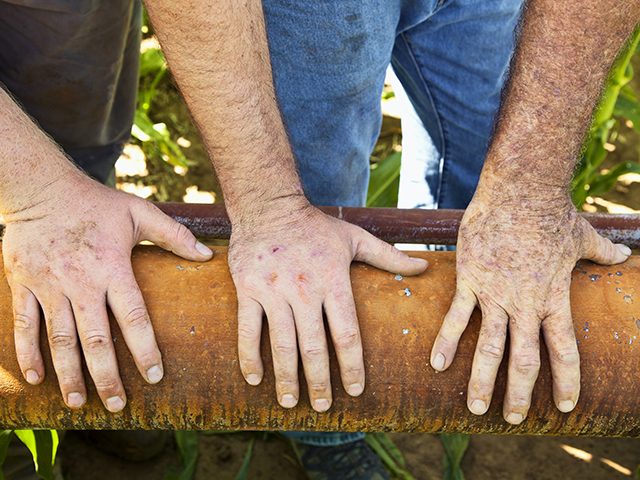Family Business Matters
Promise and Peril
Having been a part of family-farm and ranch transition discussions for more than 25 years, I've witnessed many younger generation members return to -- and occasionally leave -- the family business. The choice to join the company is a point of pride for parents and grandparents, as it represents the continuation of a legacy. But, sometimes people join the family business for the wrong reasons, and over time, they and their family members become miserable. Consider the following healthy and unhealthy reasons people return to the family business.
HEALTHY REASONS
In many cases, the next generation is passionate about agriculture. I hear stories of kids riding in tractor cabs prior to walking or spending more time working with livestock than going to school or doing homework. They know from a very early age their life will be directed toward the farm or ranch. In some cases, going away to college is seen almost as punishment. Their desire to be on the farm burns like fire.
Another reason people return to the family business is opportunity. To them, the ideal lifestyle is one in which they are their own boss, free to succeed or fail based on their approach to business and their ability to work with the soil, animals and nature. The entrepreneurial drive can best be achieved by participating in the family's historical foundation of economic activity.
P[L1] D[0x0] M[300x250] OOP[F] ADUNIT[] T[]
A third reason for returning to the operation includes a sense of stewardship. These family members feel compelled to take care of assets gleaned through the sacrifice of prior generations. It may be less about a particular farming activity or a specific part of the livestock business, and more about utilizing the resources available to the family.
There are other reasons people may return (and stay) in the business. Marriage to a farming spouse or taking over after an unexpected death or disability also bring people into the organization.
UNHEALTHY REASONS
There are also reasons people choose to join the family business which, in the long run, can lead to unhappiness. One of these is a sense of obligation. Unlike the positive aspects of stewardship, obligation suggests one comes back not of his or her own choosing, but because someone else wanted him to. These people have aspirations and goals that go unfulfilled when they replace their passion with someone else's. The lack of fulfillment eventually creates resentment, and unless they leave, the family relationship becomes tense or even destructive.
People also return because they aren't sufficiently motivated or clear about what they want to do. Coming back is easy because the senior generation makes a place for them, even if doing so enables continued uncertainty. Being unclear or unmotivated can result in a lack of drive, taking energy away from the business. As a family member, that person holds a certain status and helps set the tone for the company, and his or her involvement becomes a weak link.
Finally, some people return because they were not successful elsewhere. If the returning member comes from having failed somewhere else, it is critical to understand the origins of the flop. Has she learned the right lessons? Is he self-aware enough to understand where he needs to get better? Make sure there is an open and honest conversation about the changes that person needs to make to be successful when returning.
Coming back to the farm or ranch is a major life decision that has decades of future benefits or consequences. Take the time as a family to seriously explore the reasons behind one's return to the business. Your future self will thank you.
**
> Write Lance Woodbury at Family Business Matters, 2204 Lakeshore Dr., Suite 415, Birmingham, AL 35209, or email lance.woodbury@kcoe.com.
[PF_0421]
(c) Copyright 2021 DTN, LLC. All rights reserved.



